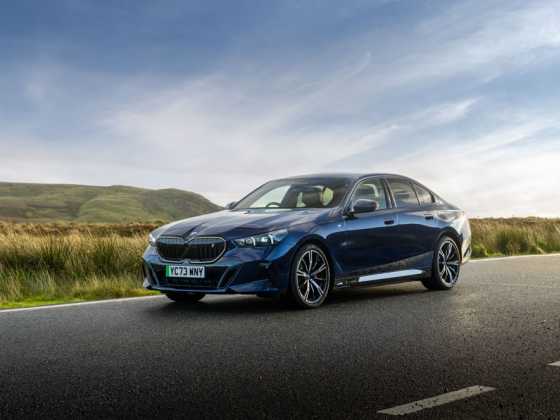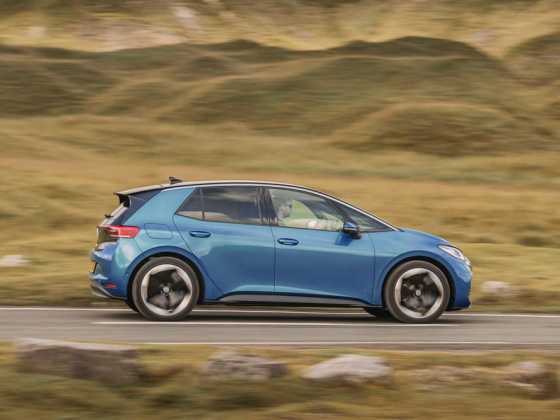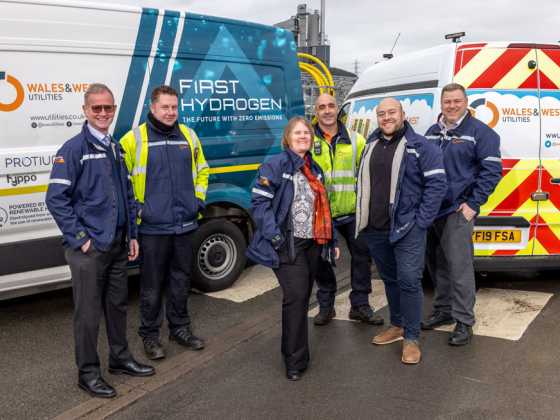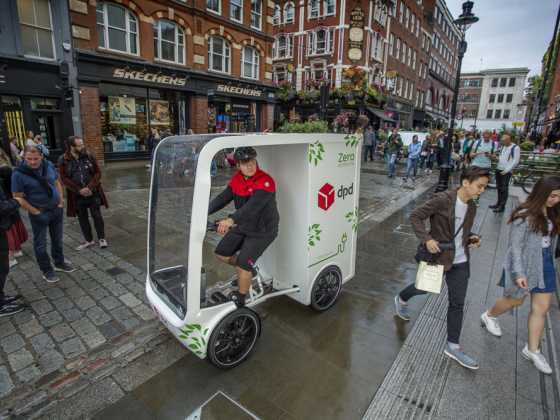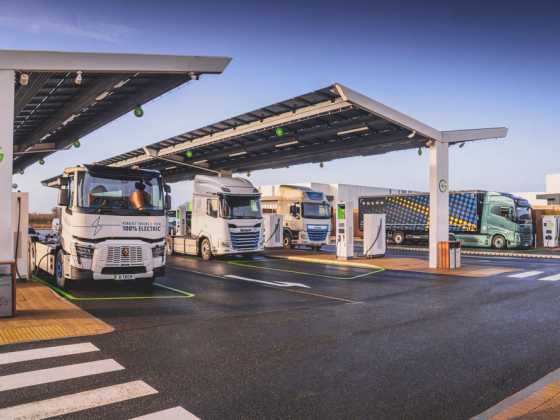The way forward for hydrogen
From taxis to London buses, hydrogen vehicles are cropping up all over the UK – a trend that’s set to continue, writes Ian Williamson, President of the European Hydrogen Association
 Hydrogen as a transport fuel is on the up. The recognition of hydrogen fuel as a solution to our transport pollution and carbon emission problems is being increasingly acknowledged among policymakers and the road transport industry. Hydrogen is attracting an ever increasing number of high profile backers, from Arnold Schwarzenegger, to Deputy Mayor for London Kit Malthouse, who said recently that he “would like to see it as the majority fuel for the vehicles on our streets.”
Hydrogen as a transport fuel is on the up. The recognition of hydrogen fuel as a solution to our transport pollution and carbon emission problems is being increasingly acknowledged among policymakers and the road transport industry. Hydrogen is attracting an ever increasing number of high profile backers, from Arnold Schwarzenegger, to Deputy Mayor for London Kit Malthouse, who said recently that he “would like to see it as the majority fuel for the vehicles on our streets.”
Meanwhile the European Commission’s low carbon transport strategy views hydrogen vehicles as one of the “most promising options” for the creation of a low carbon transport infrastructure. In addition, Europe’s car manufacturing powerhouse, Germany, is sinking 1.4 billion into developing a hydrogen transport infrastructure over the next ten years and nine of the major car manufactures have signed a letter committing to commercialising hydrogen cars by 2015.
Hydrogen in the UK
Meanwhile, in the UK, hydrogen powered fleets are cropping up around the country, from London to the Midlands and Stornoway on the Isle of Lewis. Hydrogen cars are now being used for everything from postal deliveries to taxis and the first hydrogen bus route has started on London’s streets.
The UK Government is increasingly recognising the importance of hydrogen as a transport fuel and has recognised hydrogen cars in its Plug-in-Car grant, which offers a supplement of £5,000 for purchasers of low carbon vehicles. The previous government funded a number of hydrogen fuelling stations around the UK and also established a low carbon economic area for hydrogen in the West of England and Wales, with plans to establish a “hydrogen highway” along the M4 motorway.
Why hydrogen?
Clearly then, hydrogen is being seen as one of the best options for low carbon transport in the UK and around the world. But why hydrogen? Hydrogen fuel cell vehicles offer the same range, refuelling time and speed of conventional vehicles and like battery vehicles there are no emissions at the point of use. Road transport infrastructure in the UK would look very much like it does today; cars with a range of around 400 miles refuelling in just a couple of minutes at hydrogen stations dotted around the road network.
By contrast, the main competitor to the hydrogen fuel cell, the battery, will never be the complete answer to low carbon transport. Electric cars, which store energy in a battery, cannot compete with conventional fuels in terms of range, speed or fuelling time. The practicalities of running a battery vehicle – the speed limit of 60mph and recharging for hours at a time every 70 miles – mean that long journeys are difficult.
Getting the energy
Some methods of producing electricity for battery vehicles are associated with carbon emissions in the same way that they are currently associated with the production of hydrogen. At the moment most industrial hydrogen does not come from renewable sources but there are two key points to make here.
Firstly, it is possible to create hydrogen renewably, through waste to energy technologies or by storing electricity produced by renewable energy sources like wind as hydrogen. Air Products, for example, is proposing to build a waste to energy plant in the North East of England that will have the potential to generate a renewable source of hydrogen from non-recyclable waste.
Secondly, the benefits of hydrogen are not just around carbon emissions; the fact that there are no emissions at the point of use means we are addressing the dangerous fumes produced by conventional vehicles that make our cities some of this most polluted in Europe.
Thus, hydrogen vehicles produce no harmful emissions, can run on zero carbon hydrogen and are more practical than other competing technologies.
But, hydrogen’s recent resurgence owes much to the rapid development of technology that is making it more cost effective. We have known for some time that the best low carbon alternative to conventional fuels in terms of range and fuelling time is a hydrogen fuel cell vehicle. A new report has found that hydrogen vehicles are also going to be the best option in terms of cost, possibly even within the decade. The study, ‘A portfolio of power-trains for Europe: a fact-based analysis’ used data provided by 30 leading players across the transport industry, including major car manufacturers, oil and gas companies and hydrogen industry experts like Air Products. It argues that the hydrogen fuel cell vehicle is the best low carbon transport option for the average family car. If we are genuinely to have a green transport infrastructure, hydrogen ticks all the right boxes.
Hydrogen Powered Fleets
Although the technology already exists, hydrogen cars for the general public remain some time off in the UK. While the cars themselves are rapidly approaching commercialisation, with costs falling as new technology is developed, the fuelling infrastructure will take time to be established around the country. In the shorter term, however, hydrogen powered car fleets, with a dedicated fuelling station, will be the main way that hydrogen infrastructure begins to develop around the country.
Hydrogen car fleets are already beginning to spring up around the UK and some small ones have been operating for a number of years. In the Midlands, the universities of Birmingham and Loughborough have been running hydrogen car fleets on their campuses since 2008 and were this year joined by Coventry University to form a “hydrogen ring” in the region. The Microcab cars used by the universities have been used for postal deliveries, recycling of materials and other tasks on the university campuses. They have also been used to do research on the vehicles – journeys are monitored and used to check the reliability, efficiency and cost effectiveness of the cars and to ensure their road-worthiness.
As of 2011, however, new roadworthy Microcabs are being launched that will connect the three universities, putting hydrogen powered cars on the UK’s roads for the first time.
A number of bigger hydrogen fleets are set to start appearing on the UK’s roads in the near future. The end of last year saw a groundbreaking move forward for hydrogen powered transport with the launch of London’s brand new hydrogen bus fleet. Five hydrogen buses will run on the high profile RV1 route. The Air Products series 100 fuelling station used by Transport for London (TfL) is not limited to fuelling just buses, however and TfL has plans to widen this out to a range of other vehicles, including taxis, cars and motorbikes and there are plans in place for at least two more fuelling stations in the capital by the end of 2011.
It will not be long before hydrogen powered vehicles are common place on the streets of London. In fact a hydrogen powered black taxi cab is planned for launch in London in 2012.
In addition, Leicester City Council has joined up with car manufacturer Riversimple and the universities of Leicester and De Montford to lease a fleet of 30 hydrogen cars in a 12 month pilot scheme and there are expectations that Riversimple will announce another fleet in another UK city in the near future.
The future
The recent take-up of hydrogen powered fleets will increase further as the cars become more affordable. At the same time government incentives such as the Plug-in-Car scheme will make hydrogen an increasingly attractive proposition.
It is quite clear that the UK needs to move away from conventional fuels if we are to cut carbon emissions and improve air quality in our cities. Hydrogen powered transport is the best, most practical and cost effective option that we have available to us.
Furthermore, hydrogen fleets represent an excellent opportunity particularly for local authorities, businesses and academic institutions to demonstrate their green credentials and to be at the forefront of the UK’s transition towards a hydrogen transport infrastructure.
Ian Williamson is European Hydrogen and Bio Energy Director at Air Products and President of the European Hydrogen Association.
For more information:
European Hydrogen Association:
www.h2euro.org
Air Products: www.airproducts.co.uk

